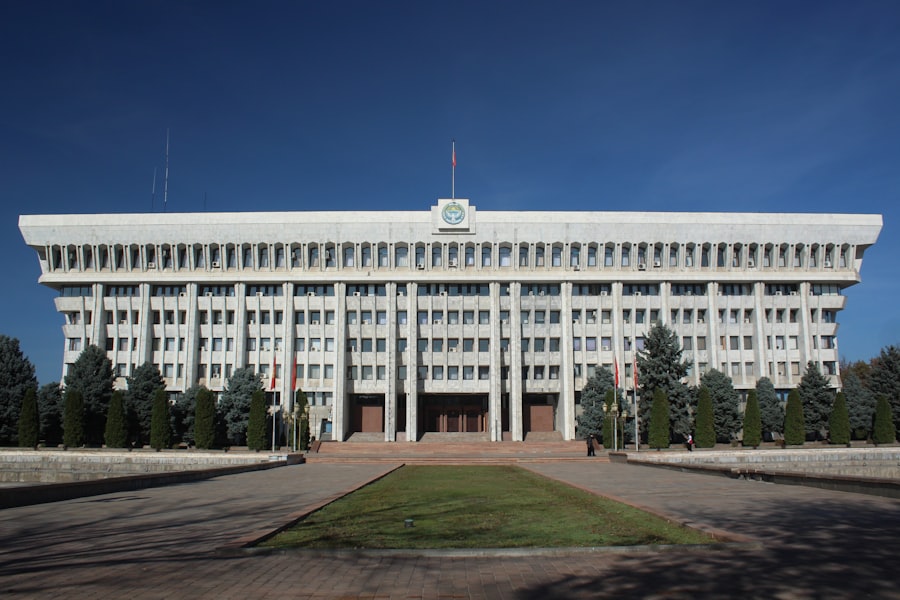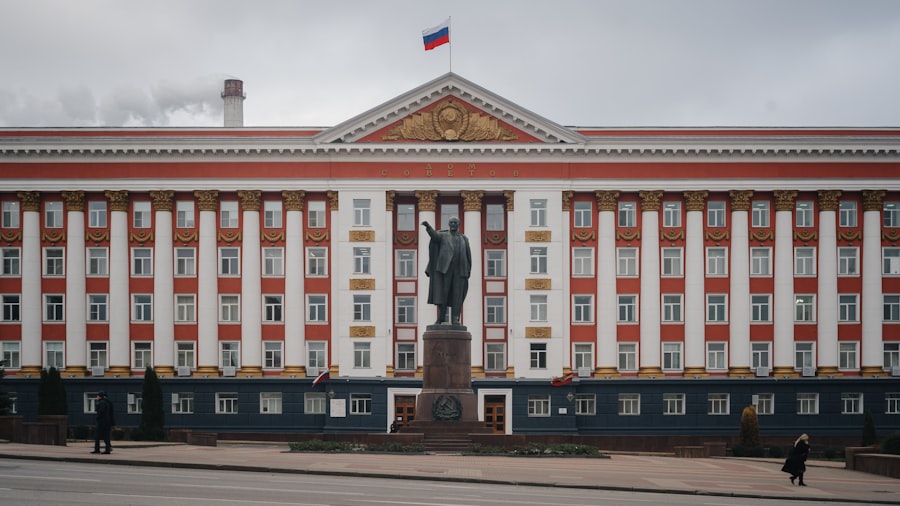The Russian military bureaucracy represents a complex and multifaceted institution that has evolved over centuries. It is a system characterized by a rigid hierarchy, extensive regulations, and a significant degree of centralization. This bureaucracy plays a crucial role in shaping Russia’s defense policies and military strategies, influencing not only the nation’s security posture but also its geopolitical ambitions.
Understanding the intricacies of this bureaucracy is essential for comprehending how Russia operates on the global stage and how it manages its military resources. At its core, the Russian military bureaucracy is a reflection of the country’s historical experiences, political ideologies, and cultural attitudes towards authority and governance. The interplay between these factors has led to a unique military structure that is often criticized for its inefficiencies and lack of transparency.
As Russia continues to navigate an increasingly complex international landscape, the effectiveness of its military bureaucracy will be pivotal in determining its future security and defense capabilities.
Key Takeaways
- The Russian Military Bureaucracy has a long history and plays a crucial role in the country’s defense and security.
- The structure and organization of the Russian Military Bureaucracy is complex, with multiple branches and departments.
- Inefficiencies and failures within the Russian Military Bureaucracy have been a persistent issue, affecting its effectiveness.
- Corruption and mismanagement have plagued the Russian Military Bureaucracy, undermining its capabilities and integrity.
- The impact of the Russian Military Bureaucracy on national security is significant, with implications for both domestic and international security.
History of the Russian Military Bureaucracy
The roots of the Russian military bureaucracy can be traced back to the Tsarist era, where the foundations of a centralized military command were established. The reforms initiated by Peter the Great in the early 18th century laid the groundwork for a professional army and a structured military administration. These early developments were aimed at modernizing Russia’s military capabilities to compete with European powers, marking the beginning of a long-standing tradition of bureaucratic governance within the military.
Throughout the 19th and 20th centuries, the Russian military bureaucracy underwent significant transformations, particularly during periods of war and political upheaval. The Soviet era brought about a radical restructuring of military institutions, emphasizing ideological conformity and centralized control. The bureaucratic apparatus expanded dramatically, with an emphasis on party loyalty and adherence to Marxist-Leninist principles.
This historical trajectory has left an indelible mark on the contemporary Russian military bureaucracy, influencing its operational practices and decision-making processes.
Structure and Organization of the Russian Military Bureaucracy

The structure of the Russian military bureaucracy is characterized by a hierarchical organization that mirrors traditional military command systems. At the top of this hierarchy sits the Minister of Defense, who oversees all branches of the armed forces and reports directly to the President. Beneath this level are various departments and agencies responsible for specific functions, such as logistics, personnel management, and strategic planning.
This layered approach allows for a clear chain of command but can also lead to bureaucratic bottlenecks and inefficiencies. Each branch of the armed forces—Army, Navy, and Air Force—operates within its own bureaucratic framework while adhering to overarching policies set by the Ministry of Defense. This division can create challenges in inter-service coordination, as each branch may prioritize its own interests over collective military objectives.
Additionally, regional commands further complicate the organizational landscape, as local commanders often have significant autonomy in decision-making, which can lead to inconsistencies in policy implementation across different areas.
Inefficiencies and Failures of the Russian Military Bureaucracy
| Category | Metrics |
|---|---|
| Logistics | High rates of equipment breakdowns |
| Procurement | Delays in acquiring necessary supplies |
| Training | Low readiness levels among personnel |
| Communication | Issues with coordination and information sharing |
| Command Structure | Confusion and inefficiencies in decision-making processes |
Despite its extensive structure, the Russian military bureaucracy is often criticized for its inefficiencies and failures. One prominent issue is the slow decision-making process that can hinder rapid responses to emerging threats. The layers of bureaucracy can create delays in communication and action, which may be detrimental in high-stakes situations where timely intervention is crucial.
This sluggishness has been evident in various military operations, where opportunities have been lost due to protracted deliberations. Moreover, the emphasis on adherence to protocol can stifle innovation and adaptability within the ranks. Military personnel may be reluctant to propose new ideas or strategies for fear of deviating from established procedures.
This culture of risk aversion can prevent the armed forces from evolving in response to changing warfare dynamics, ultimately compromising their effectiveness on the battlefield. As a result, the Russian military bureaucracy often finds itself grappling with outdated practices that do not align with contemporary security challenges.
Corruption and Mismanagement within the Russian Military Bureaucracy
Corruption remains a pervasive issue within the Russian military bureaucracy, undermining its integrity and operational effectiveness. Instances of embezzlement, bribery, and nepotism have been reported at various levels of command, leading to a culture where personal gain often takes precedence over national interests. This corruption not only diverts essential resources away from critical military needs but also erodes trust among personnel and diminishes morale.
Poor resource allocation and inadequate training programs have resulted in suboptimal preparedness among troops. Reports have surfaced regarding substandard equipment and supplies being issued to soldiers, raising questions about the commitment to ensuring their safety and effectiveness.
Such mismanagement not only jeopardizes operational readiness but also poses risks to national security as it hampers the ability to respond effectively to external threats.
Impact of the Russian Military Bureaucracy on National Security

The implications of the Russian military bureaucracy extend far beyond its internal operations; they significantly impact national security as well. A well-functioning military bureaucracy is essential for formulating coherent defense strategies and ensuring that resources are allocated efficiently to address potential threats. However, the inefficiencies and corruption endemic within this system can lead to vulnerabilities that adversaries may exploit.
Moreover, the bureaucratic nature of decision-making can result in a lack of agility in responding to rapidly evolving geopolitical situations. In an era where hybrid warfare and asymmetric threats are increasingly prevalent, the ability to adapt quickly is paramount. The rigidity inherent in the Russian military bureaucracy may hinder its capacity to respond effectively to unconventional challenges, thereby compromising national security interests.
Attempts at Reforming the Russian Military Bureaucracy
In light of these challenges, there have been various attempts at reforming the Russian military bureaucracy over recent years. Initiatives aimed at modernizing military structures and processes have been introduced, often driven by a recognition of the need for greater efficiency and accountability. These reforms have included efforts to streamline command structures, enhance training programs, and improve procurement processes for military equipment.
However, these reform efforts have faced significant obstacles rooted in entrenched interests within the bureaucracy itself. Resistance from those who benefit from maintaining the status quo has often stymied progress, leading to half-hearted implementations that fail to address underlying issues comprehensively. As a result, while some advancements have been made, substantial reform remains elusive, leaving many systemic problems unresolved.
International Perceptions of the Russian Military Bureaucracy
The international community’s perception of the Russian military bureaucracy is shaped by both its historical legacy and contemporary actions on the global stage. Many analysts view it as a formidable institution capable of projecting power; however, there are also widespread concerns regarding its effectiveness and reliability. The perception of corruption and inefficiency can undermine confidence among allies and partners who may question Russia’s commitment to collective security arrangements.
Furthermore, incidents involving military operations abroad have drawn scrutiny regarding the competence of Russian forces. The outcomes of conflicts in Ukraine and Syria have raised questions about strategic planning and execution within the military bureaucracy. These perceptions can influence diplomatic relations and impact Russia’s ability to forge alliances or engage in cooperative security initiatives with other nations.
Future Challenges for the Russian Military Bureaucracy
Looking ahead, several challenges loom large for the Russian military bureaucracy as it seeks to navigate an increasingly complex global environment. One pressing issue is adapting to technological advancements in warfare, including cyber capabilities and unmanned systems. The bureaucratic structure must evolve to integrate these innovations effectively while ensuring that personnel are adequately trained to operate new technologies.
Additionally, demographic shifts within Russia pose significant challenges for recruitment and retention within the armed forces. As population declines impact available manpower, maintaining a robust military becomes increasingly difficult. The bureaucracy will need to devise strategies that attract talent while addressing issues related to morale and working conditions within the ranks.
Comparisons with Military Bureaucracies in Other Countries
When comparing the Russian military bureaucracy with those of other countries, notable differences emerge in terms of structure, efficiency, and adaptability. For instance, Western militaries often emphasize decentralized decision-making processes that empower lower-ranking officers to act swiftly in response to changing circumstances. This contrasts sharply with Russia’s more centralized approach, which can hinder responsiveness.
Moreover, transparency and accountability mechanisms are more robust in many Western militaries compared to their Russian counterpart. This difference can lead to greater public trust in defense institutions abroad while contributing to skepticism regarding Russia’s military governance. Understanding these comparisons provides valuable insights into potential pathways for reforming the Russian military bureaucracy.
The Need for Overhauling the Russian Military Bureaucracy
In conclusion, the complexities surrounding the Russian military bureaucracy underscore an urgent need for comprehensive reform. While historical legacies shape its current structure and operations, persistent inefficiencies, corruption, and mismanagement threaten national security interests. As Russia faces evolving geopolitical challenges, an overhaul of its military bureaucracy is essential for enhancing operational effectiveness and ensuring that it can respond adeptly to contemporary threats.
The path forward will require not only structural changes but also a cultural shift within the organization that prioritizes accountability, innovation, and adaptability. By addressing these fundamental issues, Russia can strengthen its military capabilities while fostering greater trust among its personnel and allies alike—ultimately positioning itself more effectively on the global stage.
In exploring the intricacies of Russian military bureaucracy, it’s essential to consider the broader context of military organizational challenges. An insightful article that complements this discussion is available on In The War Room. This piece delves into the systemic issues faced by military institutions, highlighting how bureaucratic inefficiencies can impact operational effectiveness. By examining these challenges, the article provides a comprehensive understanding of the hurdles that military organizations, including Russia’s, must overcome to maintain strategic and tactical proficiency.
WATCH NOW! 🎖️ Plot Twist: Russia’s Military Is Being Eaten Alive By Its Own Corruption
FAQs
What is Russian military bureaucracy?
Russian military bureaucracy refers to the complex and often inefficient system of administrative procedures and regulations within the Russian military. This bureaucracy can hinder decision-making, slow down processes, and create inefficiencies within the military.
What are some problems associated with Russian military bureaucracy?
Some of the problems associated with Russian military bureaucracy include slow decision-making, excessive red tape, corruption, lack of accountability, and inefficiency in resource allocation. These issues can hinder the effectiveness and readiness of the Russian military.
How does Russian military bureaucracy impact the military’s effectiveness?
Russian military bureaucracy can impact the military’s effectiveness by slowing down decision-making processes, hindering the implementation of new strategies and technologies, and creating inefficiencies in resource allocation. This can ultimately affect the military’s readiness and ability to respond to threats.
What efforts are being made to address the problem of Russian military bureaucracy?
Efforts to address the problem of Russian military bureaucracy include reforms aimed at streamlining administrative procedures, reducing red tape, improving transparency and accountability, and combating corruption within the military. However, progress in these areas has been slow and the problem persists.




